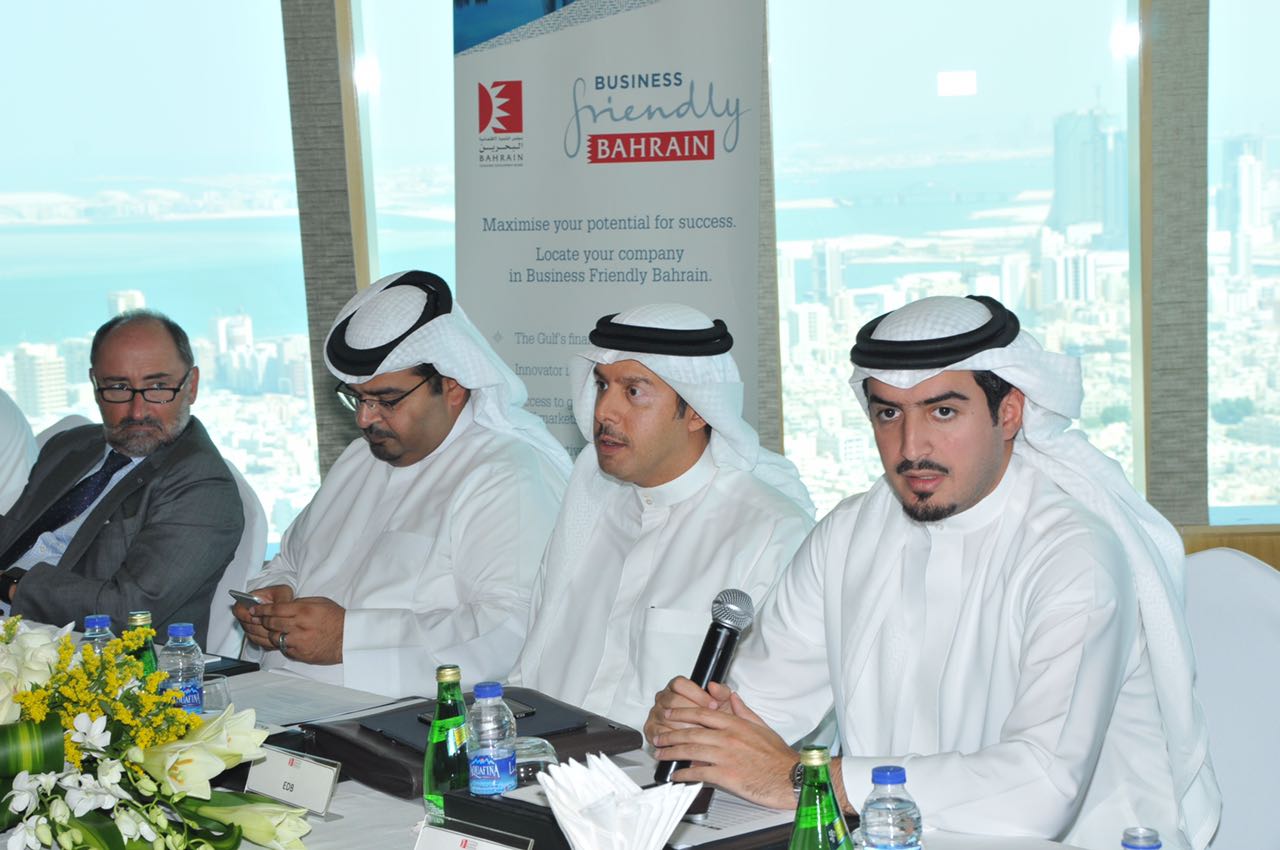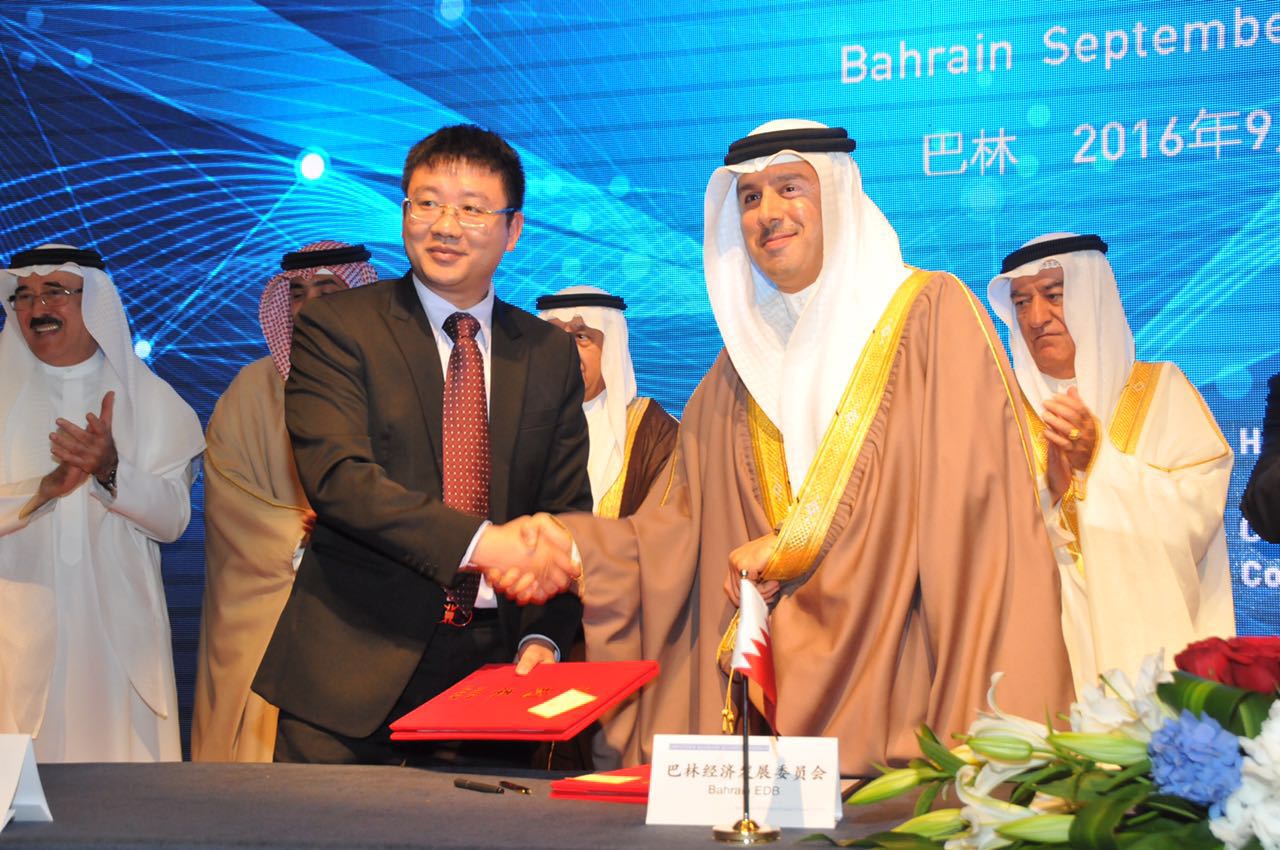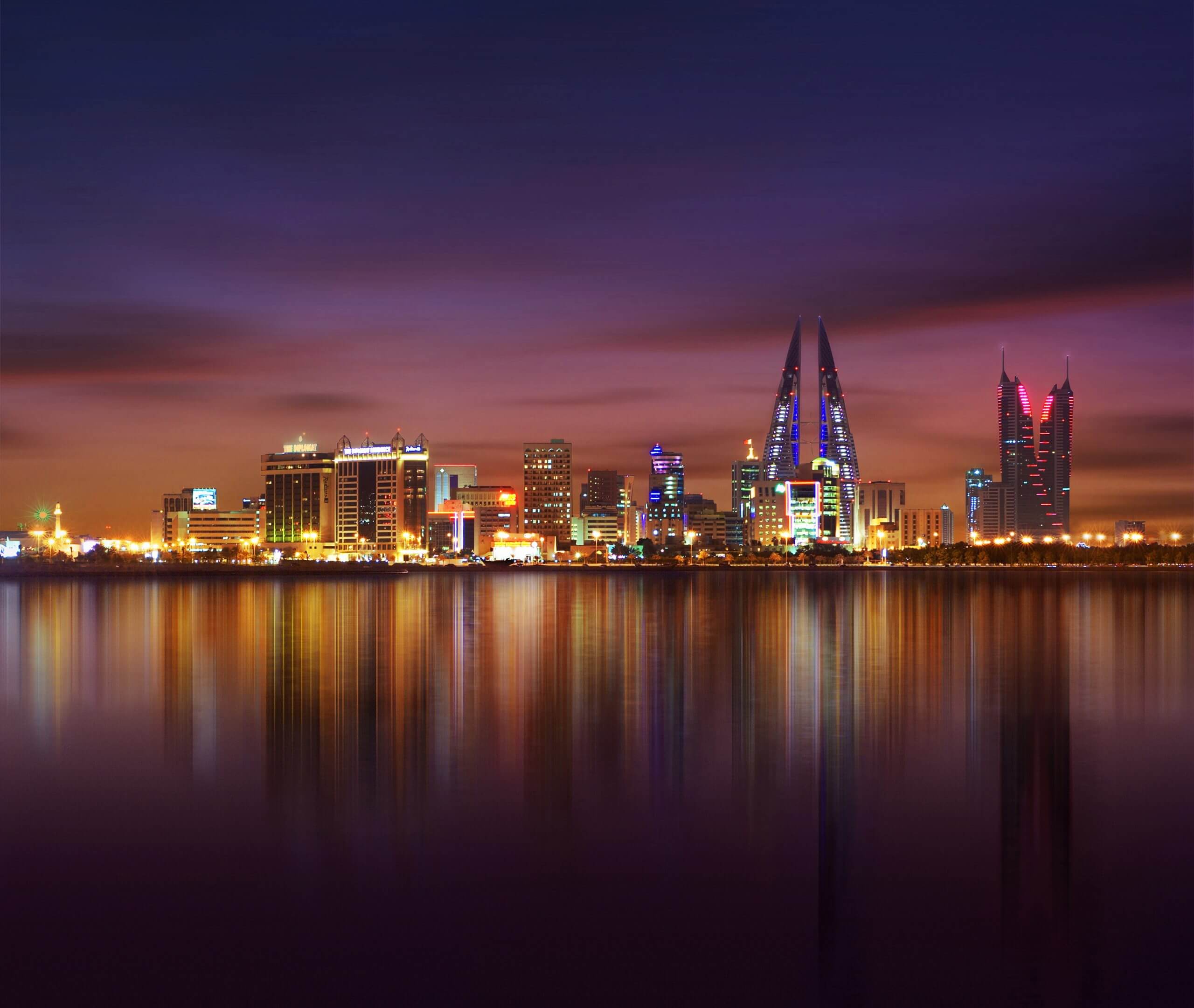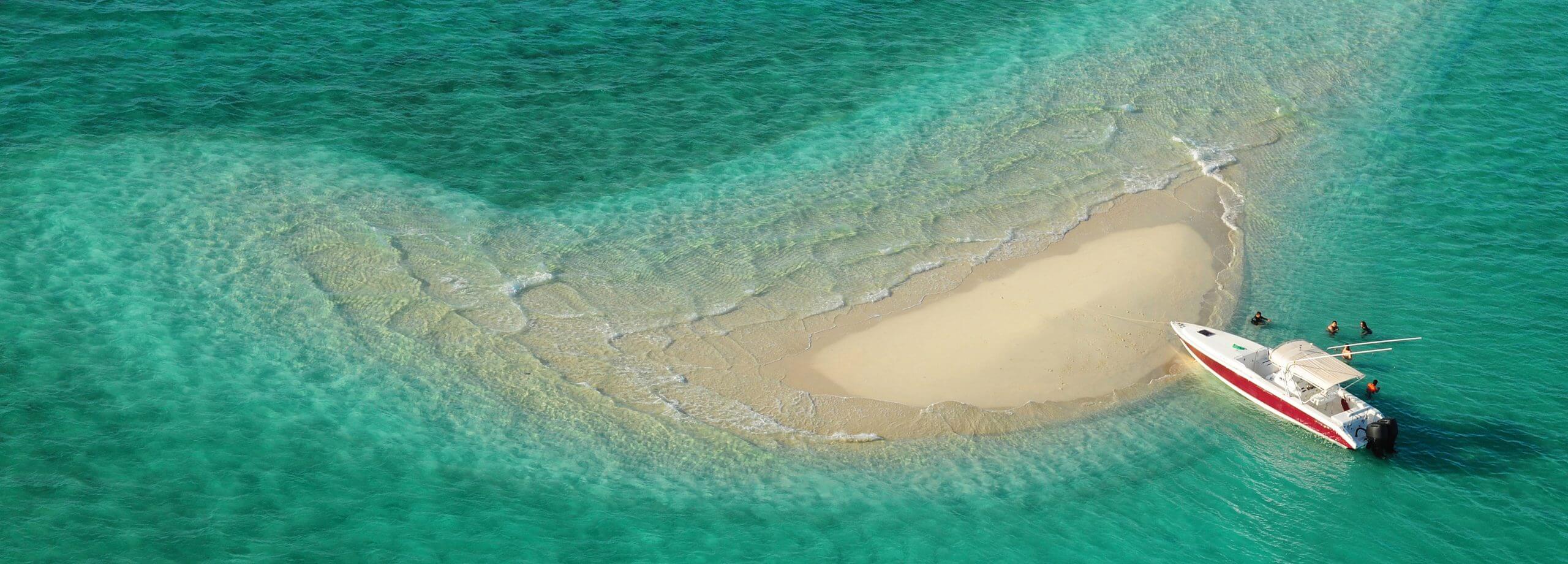October 01, 2016
Bahrain commits to pioneering payments
October 01, 2016
New opportunities for you:At the heart of a region in which the FinTech industry is projected to boom in the coming years, Bahrain is pushing forward with initiatives will make it become the Gulf’s FinTech hub.
These initiatives will unlock opportunities for international Payment Service Providers (PSPs) and payments support services to meet Bahrain’s growing demand for payments solutions.
Spearheaded by the EDB, current initiatives include:
· Know Your Customer (KYC) Regulation: Introducing regulation that supports a risk-based, tiered-KYC approach and permits outsourcing of KYC activities to third-parties
· Acquirer Model: Making it easier for Independent Service Organisations (ISOs) and PSPs to fill gaps in the current acquirer model
Contact the EDB on investorenquiries@bahrainedb.com to find out more >
|
Telecom revenues breach the billion mark
October 01, 2016
Bahrain’s Telecommunications Regulatory Authority (TRA) reported a USD 53 million boost in telecom revenues between 2014 and 2015. The twelve-month period saw a rise from USD 1.14 billion to USD 1.193 billion.
Recent rankings reaffirm Bahrain’s strength in ICT:Rapid growth in telecommunications subscriptions, implementation of government endorsed policies and services, and ongoing infrastructure development see Bahrain lead the region in ICT in recent indices:
1st in MENA | 11th globally
Telecommunications Infrastructure Index
United Nations E-Government Survey 2016
1st in MENA | 24th globally
E-Government Development Index
United Nations E-Government Survey 2016
1st in MENA | 27th globally
ICT Development Index
Measuring the Information Society Report (ITU) 2015
1st in MENA | 1st globally
Mobile Network Coverage Rate
The Global Information Technology Report (WEF) 2016
1st in MENA | 7th globally
Government Online Service Index
The Global Information Technology Report (WEF) 2016
2nd in MENA | 4th globally
Mobile Broadband Internet Subscriptions
The Global Information Technology Report (WEF) 2016
|
New law supports partnerships
October 01, 2016
Bahrain has become the first country in the MENA region to integrate limited partnerships laws into its legal system nationwide with the introduction of the Limited Investment Partnership Law.
Forming a Limited Investment Partnership (LIP) in BahrainYou can form a LIP in Bahrain by either establishing a new professional partnership as an LIP, or converting an existing partnership into an LIP. All involved partners can be either individuals or companies.
Establishing an LIP is as immediate as filling in an LIP application form from the CBB.
Contact the EDB on investorenquiries@bahrainedb.com to find out more >
|
Welcoming the world to Bahrain
October 01, 2016
First Roundtable Organised by the EDB Discusses Potential for Collaboration in Real Estate Sector

September 22, 2016
The Economic Development Board (EDB) organised a roundtable focusing on the real estate sector in Bahrain and explored means of developing the industry further. The session, which featured the participation of officials from the public sector as well as real estate developers, allowed for discussion on ways to continue to have the sector attract investments and increase economic growth for the country.
The session aimed at establishing a collaborative strategy for the sector and reviewing development plans that emphasise transparency and coordination among projects to increase potential sustainability. It also covered identifying strategies which attract investments to the sector and raise the international profile of the Kingdom’s real estate market.
Mr. Khalid Al Rumaihi, Chief Executive of the EDB, commented:
“The EDB aims to unify efforts between the public and private sectors to further build real estate development and highlight its role in economic diversification.”
“This is part of an ongoing effort aimed at developing the sector and highlighting the investment opportunities it offers, which aligns with the EDB’s strategy of focusing on developing five main sectors that offer competitive advantages to the Kingdom.”
Participants were briefed on EDB’s strategy for the sector, specifically in areas of tourism and leisure. The session also featured discussions to enhance joint work between the various parties and identify investment opportunities in the local market. A presentation also provided the audience with knowledge on the upcoming projects by real estate developers in Bahrain, to unify promotion efforts internationally.
World’s Largest Container and Trailer Manufacturer CIMC Unveils State of the Art Manufacturing Facility in Bahrain

September 05, 2016
– A new reefer trailer manufacturing and export hub in Bahrain –
Manama, 5th September 2016: CIMC Vehicle Group, the core member enterprise of China International Marine Containers Group Ltd. (CIMC) – a world leading supplier of logistics and energy equipment, announced today that it will invest and launch its first manufacturing facility in Bahrain with 20 new job opportunities as phase one.
The new facility will serve as a major reefer trailer manufacturing and export hub in the Middle East. Reefer trailers, are vehicles which are used in the transportation industry, to transport temperature sensitive goods. CIMC is dedicated to supplying high-quality and reliable equipment and services, including containers, vehicles, energy, chemical and food equipment, offshore equipment, logistics service, and airport facilities. As a diversified multinational operation group worth almost 8 billion USD, CIMC has over 300 member enterprises, 60,000 staff, and an extensive sales network that covers more than 100 countries and regions. The multinational company was supported by the Bahrain Economic Development Board (EDB), which attracts international companies to the Kingdom, and fully supports their establishment. The EDB identified and targeted CIMC’s business activity portfolio as a requirement for the region as part of its efforts during the China Road Show, undertaken by the EDB in 2014. The EDB assisted CIMC in investigating Bahrain’s investment climate where they fully supported CIMC throughout their registration and setting-up process, as well as their other business requirements in order to ensure the company’s successful inception. Besides being the biggest container-manufacturing company globally since 1996, CIMC started the trailer business in 2002, and now is also the world’s biggest trailer manufacturer.
Khalid Al Rumaihi, Chief Executive of the Bahrain Economic Development Board (EDB), said:
“We are delighted to welcome CIMC to Bahrain and believe their investment is a reflection of Bahrain’s excellent regional transport connections, mature regulatory system, and the strength of its highly-skilled local workforce. As part of the EDB’s ongoing logistics initiative, Bahrain offers global manufacturing companies like CIMC a number of competitive advantages that will serve to benefit their operations in the region. The Kingdom has the shortest travel time between seaport, airport, and logistics processing zones, and is connected to the GCC’s biggest economy. Besides being the freest economy in the Middle East, we are ranked 29th globally by the World Economic Forum for the quality of our transport infrastructure. The EDB is proud to have played a part in securing CIMC’s investment and in creating more quality job opportunities for Bahrainis. We look forward to CIMC expanding their business operations even further in the Kingdom.”
Ms. Teresa Tan, CFO of CIMC Vehicle Group, commented:
“Bahrain was an easy choice for CIMC to launch its new manufacturing facility. The Kingdom has excellent infrastructure, cost competitiveness, a strong connectivity to Saudi Arabia as well as the GCC and the Middle East region. These are essentials for our operations. We believe Bahrain’s highly skilled workforce and open business environment provide us the perfect platform for our next growth phase.”
As part of the Shenzhen – Bahrain Business forum, held this morning, the EDB signed two MOUs with “Galaxy Institute for Innovation and Entrepreneurship”, and “Huawei Technologies Bahrain S.P.C.”.
The MOU signed with “Galaxy Institute for Innovation and Entrepreneurship” aims to promote cooperation between the EDB and the institute through exploring opportunities around establishing incubators in Bahrain, joint business forums and promotional activities. It will also include establishing a Galaxy Institute for financial funds in partnership with Bahraini companies to support investments and entrepreneurship in Bahrain and China. Under the MOU, the EDB and the institute will also exchange ideas on innovation, as well as the legislation and planning around entrepreneurship-related laws and regulations.
The MOU signed with “Huawei Technologies Bahrain S.P.C.”, looks at opportunities to enhance and expand the ICT sector in the Kingdom leading to greater economic growth and cooperation. Additionally, the MOU provides a framework from which the parties can explore and implement a strategic plan to develop the human capital in Bahrain and the possibility of cooperating with official authorities in technological solutions presented by Huawei.
The Shenzhen – Bahrain Business Forum was held as part of an official high-level Chinese business delegation visit, led by His Excellency Xu Qin, Mayor of Shenzhen to Bahrain between the 4th and 5th of September 2016. The event was a platform for further investment cooperation between Bahrain and China, explores the various opportunities between the two countries, and discusses possibilities of establishing companies in Bahrain and China.
Bahrain’s manufacturing sector contributes considerably to the Kingdom’s economy, accounting for over 14.6% of real GDP, having grown by 20% over the past 5 years; it is the second largest contributor to Bahrain’s economy in the non-oil sector. The Kingdom is the most efficient processor of trading goods with the shortest travel time between seaport, airport and logistics processing zones in the GCC. Manufacturers based in Bahrain also benefit from the Kingdom’s membership of the Great Arab Free Trade Agreement (GAFTA) and free trade agreement with the United States, Singapore, and Northern Europe.
Mayor of Shenzhen Discusses Cooperation with Bahrain’s Economic Development Board
August 31, 2016
Meetings organised with leading private and public sector representatives
Manama, Economic Development Board: The Bahrain Economic Development Board (EDB) is preparing to receive an official Chinese business delegation led by His Excellency Xu Qin, Mayor of Shenzhen, one of China’s prominent economic centers. The visit, taking place on the 4th and 5th of September, provides an opportunity for the representatives of various business sectors in Bahrain to meet with their counterparts from Shenzhen in order to explore investment cooperation opportunities and potential future partnerships.
The city of Shenzhen is a hub for several vital economic sectors including Financial Services, and Transportation and Logistics Services. Shenzhen is also among the four largest cities in China with a population of 11 million and a gross domestic product (GDP) of around US $261 billion. Shenzhen represents one of the greatest Chinese economic success stories and is one of the first to introduce special economic zones.
The Chinese delegation will include representatives from several organisations involved in investments in the city of Shenzhen, as well as from a number of leading sectors in the Chinese economy, including: ICT, Healthcare, Transportation. During their visit, they will hold meetings with senior officials from the public sector and representatives from the private sector, along with Chinese businesses with regional operations in Bahrain. Members of the delegation, along with Bahrain EDB and Bahrain Chamber of Commerce & Industry, will also participate in the Bahrain–Shenzhen business forum.
In 2013, the EDB established an international office in People’s Republic of China and also opened an international office in Hong Kong in 2016. The office plays a key role in promoting Bahrain in China. In September 2015, a high level Bahrain business delegation, organised by the Bahrain EDB, concluded a successful ten-day roadshow to China. The visit resulted in the signing of 15 MOUs with Chinese businesses and trade organisations and helped strengthen economic and trade ties between the two countries. The visiting delegation also took part in the China International Fair for Investment & Trade (CIFIT), at which Bahrain was the guest country of honour.
Non-oil trade between Bahrain and China was valued at around USD$1.8 million in 2015. mechanical and electrical equipment, represent the largest imports to Bahrain, while chemicals were the leading exports to China that same year.
Bahrain ranked top among GCC countries in WEF Human Capital Index

July 26, 2016
- Kingdom ranks 1st in MENA and 46th worldwide –
Bahrain Records Strong Growth of 4.5% in First Quarter of 2016

July 20, 2016
led by oil sector YOY growth of 12.1%



